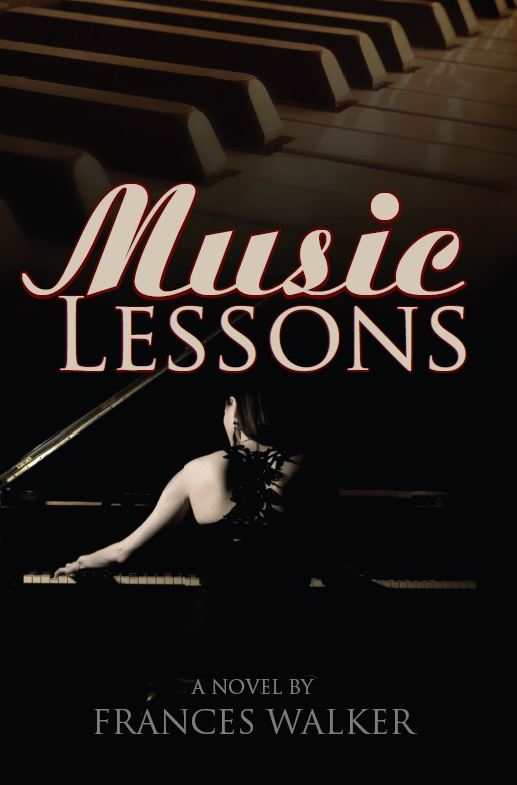Music Lessons
A small Tennessee town comes to life through the vivid details of a family with high ambitions for their youngest girl.
You should never forget where you’ve come from—that’s the central message of Frances Walker’s Music Lessons. A story about journeys, hindsight, and finding one’s way back home again, this lively and sweet tale follows Grace Stevens and her evolution from poor Tennessee girl to big city coed.
Grace Stevens is in elementary school when she meets Bertie El Hewitt, a rich widow who gives piano lessons to the children of Grantville, Tennessee. Grace’s grandmother, mother, and aunt scheme and save to pay for lessons. Grace soon becomes a talented young woman, winning state competitions, adopting the luxuries of Bertie El’s lifestyle, and eventually packing up her things to leave her “hillbilly” town for the big city and Vanderbilt University.
The strength of Music Lessons is in its sense of place. Walker brings Grantville to vivid life through exact descriptions that make it an almost idyllic rural town. The setting is critical to the telling of the story, emphasizing the loving upbringing and close community that Grace leaves behind later in the novel. It is an effective strategy, cleverly balancing the two contradictory environments to enforce Grace’s discomfort and naivety as she navigates city life.
Walker has also created memorable and admirable characters, particularly in the trio of tough-talking women who surround Grace. They pay for her lessons, buy her a piano from a church rummage sale, and sew proper clothes for her lessons and eventual recitals. These actions reveal the three women as at once innocently hopeful and doggedly determined to raise their talented Grace above her mill-village life. Only Grace’s alcoholic father protests, chiding her with a common refrain that haunts Grace throughout the story: “Who do you think you are anyway?”
This opens up an important theme that runs through Music Lessons, one that is held under a harsh light during Grace and Bertie El’s first piano lesson, when she berates the young girl for her family’s poverty and the fact that children like her “rarely ever took advantage of good opportunities.” It’s obvious from the start that the piano lessons are a pathway to greater things. Walker best expresses this through Grace’s wardrobe, carefully built by her grandmother and aunt to convince those above her to accept the poor Tennessee “hick” as one of their own. At the same time, Walker keeps alive the warning that Grace’s ambitions will have repercussions; this is conveyed through Grace’s growing distance from her mother.
However, a flaw in the narrative arrives at the midpoint, when Grace’s charmed life turns sour. Because Walker allows Grace to live so easily until Vanderbilt, hinting subtly that her protagonist will struggle to adjust to a new life, Grace’s more severe struggles seem to come from nowhere. There are no hints that Grace—despite her good fortune—struggles with feelings of insecurity and inherited alcoholism from her father and grandfather. Because there’s little preparation, the increasing severity of Grace’s problems seems unrealistic.
Nonetheless, Music Lessons is a touching tale about achieving dreams, accepting others, and finding oneself. Though slightly saccharine at times—thanks to its rags-to-riches theme and numerous protestations of gratitude by the novel’s characters—Walker weaves a thoroughly entertaining tale, strengthened by her acute sense of place and the larger-than-life Stevens women.
Reviewed by
Shelley Mae Hazen
Disclosure: This article is not an endorsement, but a review. The publisher of this book provided free copies of the book and paid a small fee to have their book reviewed by a professional reviewer. Foreword Reviews and Clarion Reviews make no guarantee that the publisher will receive a positive review. Foreword Magazine, Inc. is disclosing this in accordance with the Federal Trade Commission’s 16 CFR, Part 255.

